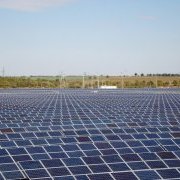30-Sep-2020
New Indian Express
India will try and keep its taxation laws out of the ambit of all Bilateral Investment Treaties (BITs) and comprehensive economic pacts that it negotiates.
30-Sep-2020
Mining Weekly
Indiana Resources has lodged a $95-million compensation claim against the government of Tanzania over the "illegal expropriation” of the Ntaka Hill nickel project.
28-Sep-2020
Albanian Daily News
KURUM company sued Albania at the International Court of Arbitration asking EUR 100 mln for termination of the contract of the container terminal in Durresi Harbor.
16-Sep-2020
Trade Justice Movement
As the UK regains full responsibility for its trade and investment policy post-Brexit, it must seriously consider its approach to international investment protection.
16-Sep-2020
Climate Home News
Negotiators have ruled out an overhaul of private courts that allow energy companies to sue national governments when climate change policies hurt their profits.
11-Sep-2020
National Magazine
Tensions are likely to surface between the public-policy directions of governments managing a challenging economic climate and foreign investors’ private interests.
11-Sep-2020
Afronomics Law
Tanzania’s reforms show that the claim that African states should regard ISDS mechanism as the preferred method for resolving investment disputes is not only very contested, but that there are legitimate grounds for those contestations.
11-Sep-2020
Indonesia for Global Justice
Indonesian CSOs assesses the national economic recovery strategy by strengthening policies economic liberalization focusing only on investment and exports will only be increasingly open space for corporate monopoly on economic resources.
10-Sep-2020
Climate Home News
A British oil and gas company is using a controversial energy treaty to sue Slovenia, after being required to carry out an environmental impact assessment
9-Sep-2020
Afronomics Law
The hegemon aspirants in international investment law have already, and perhaps unwittingly, revealed their three step manual: Disguise, dismiss, divert.
























